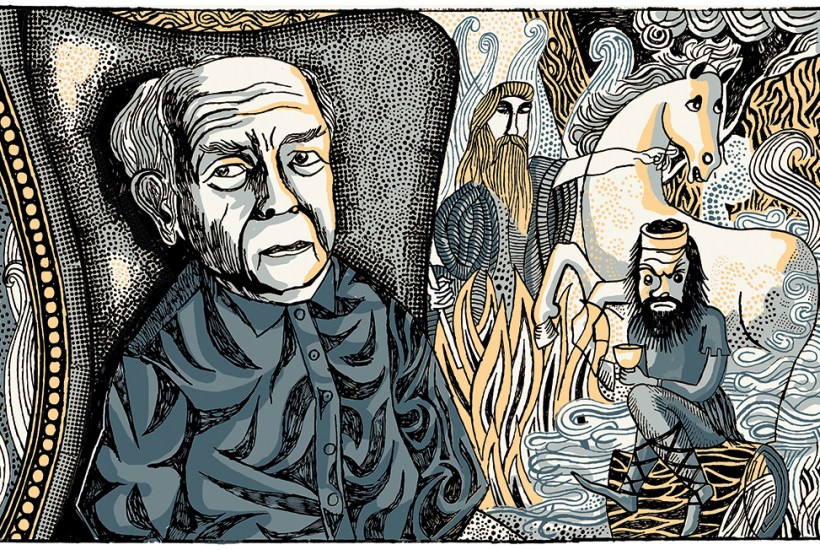Alan Garner is sitting in a high-backed leather porter’s chair right inside the hearth enclosure of an immense fireplace, with a chimney stack stretching up 27ft and a very strange-looking firepit.
I duck under a beam to join him. He adds a log to the fire and says: ‘This firepit is made from a disused steam engine we found in an old lead mine and the rear brake-drum of a Model T Ford lorry.’
Already a subscriber? Log in
Subscribe for just $2 a week
Try a month of The Spectator Australia absolutely free and without commitment. Not only that but – if you choose to continue – you’ll pay just $2 a week for your first year.
- Unlimited access to spectator.com.au and app
- The weekly edition on the Spectator Australia app
- Spectator podcasts and newsletters
- Full access to spectator.co.uk
Or
Unlock this article
You might disagree with half of it, but you’ll enjoy reading all of it. Try your first month for free, then just $2 a week for the remainder of your first year.









Comments
Don't miss out
Join the conversation with other Spectator Australia readers. Subscribe to leave a comment.
SUBSCRIBEAlready a subscriber? Log in